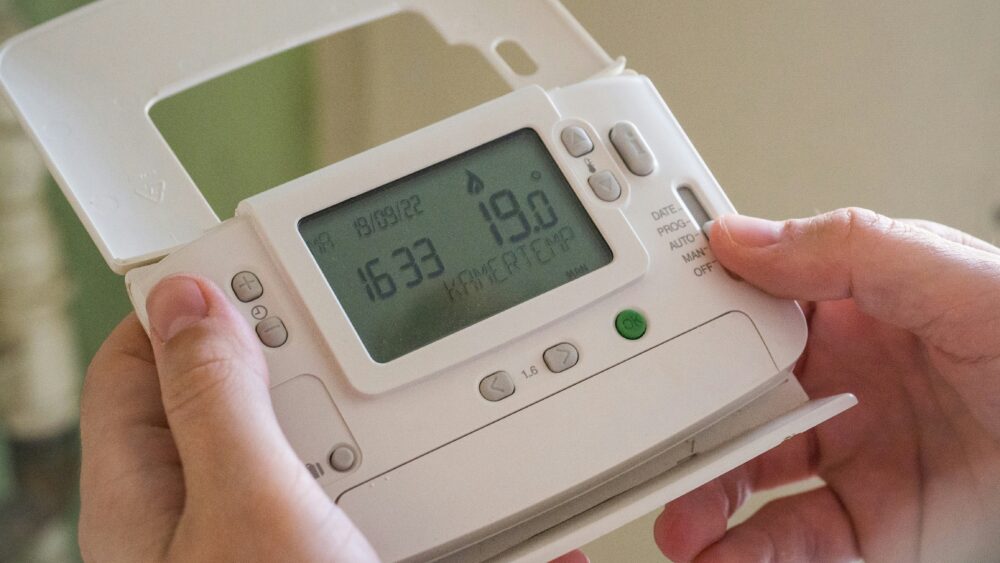New research: cost of living crisis persists for social housing tenants in Wales

For many of us it has been difficult to adjust to the ‘new normal’ caused by the cost of living crisis, with the price of food, energy and other essentials remain high. For social housing tenants in Wales, who are amongst those on the lowest incomes, the impact of the crisis has been more than just having to cut back. Many have been unable to weather increasing costs and are now living in persistent hardship.
Here, policy and external affairs manager Bethany Howells introduces our new research into the continuing impact of the cost of living crisis on housing association tenants in Wales.
Our central welfare system has failed to provide a robust safety net for vulnerable people, including social housing tenants, to even keep their heads above water, let alone provide them with the economic security they need to live comfortably.
The insufficiency of the current rates of Universal Credit are well established. Joseph Rowntree Foundation’s research shows that around five out of six low income households on Universal Credit are currently going without essentials - these are the very basics that they need to live.
Our latest research report, A deepening crisis: the cost of living crisis isn’t over for social tenants in Wales, shows that tenants who receive Universal Credit are one of the most likely groups to reach out to their housing association for help. People in Wales who receive benefits are five times more likely to sometimes, often, or always not have enough to afford the basics than the general population. Many people on benefits are living in constant crisis.
Housing associations are doing what they can to help their tenants in this situation. In the eight months between July 2023 and March 2024, our research found that they issued 2,685 foodbank vouchers to tenants and provided energy advice to 2,045 tenants. They also provided financial support to more than 7,000 tenants on average, every three months since January 2023.
Between July 2023 and March 2024, 17 housing associations also helped tenants to maximise their incomes by £17.4m. This vital support demonstrates that not-for-profit housing associations are well placed to deliver financial support services to their tenants. However, all our member housing associations' financial teams are finding it increasingly difficult to maximise tenants’ incomes. Lots of the tenants they support are already receiving their maximum entitlements and still struggling to make ends meet.
“[I] find myself increasingly saying that there is no more money - and people’s response being how am I meant to survive on that.”
Most housing associations in Wales offer tenants a lifeline in the form of hardship funds. These are allocated funds that can be used at a housing officers’ discretion. In 2024/25, 95% of housing associations surveyed have a hardship grant. In total, this makes available £1.6m of additional support for Welsh housing association tenants. The number of housing associations providing hardship relief has increased year on year from 69% in 2021/22.
Our deepening crisis report identifies some common themes that we need to explore further - for example, fully understanding the impact that migration to Universal Credit will have on social tenants in Wales; learning more about how Welsh benefits are administered across local authorities; and drilling into the specific challenges for different types of tenants who are struggling, like those who are in work or those who have a disability. We plan to do more research into these themes over the summer and share the findings in our next cost of living report.
Ahead of the July 2024 general election, the evidence we have collected has informed our asks to the next UK Government.
We need a more coherent approach between Westminster and Welsh Government policy to ensure that people do not fall between the gaps. This means:
- a holistic approach to welfare support that prevents homelessness and supports access to the rental market;
- a reform of Universal Credit to ensure that claimants can pay for basic essentials as a minimum;
- improvements to the Universal Credit system for both claimants and housing associations;
- an energy system that protects low-income households;
- a government commitment to support the sector to achieve its net zero goals.
Download our general election briefing paper now to find out what these calls can look like in more detail.








